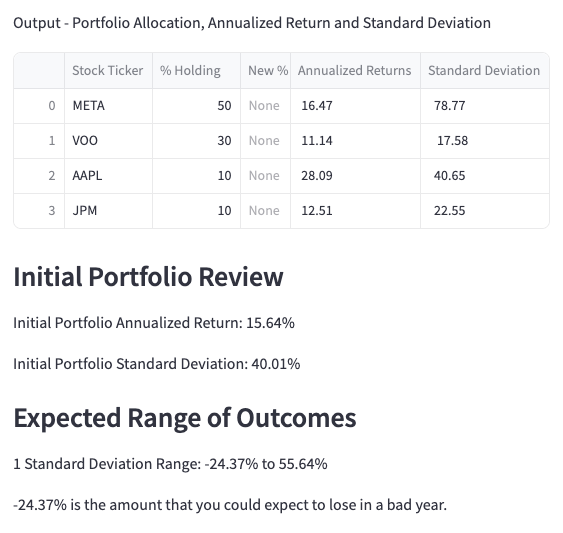I lost 20% of my net worth because of my Google employee stock (RSUs)
The Hidden Perils of Tech RSUs: A Cautionary Tale for FAANG Employees
For much of the 2010s, my net worth growth was fueled by a golden goose: Google employee stock options. From 2014 to 2021, the value of my Restricted Stock Units (RSUs) nearly tripled, delivering an impressive 16% annual growth. Life was good, and the paper gains were even better. Why diversify when you're riding a rocket?
Then came the post-COVID interest rate hikes, responding to inflationary pressures from supply chain disruptions and pent-up pandemic demand. As the saying goes, interest rates are like gravity - when they go up, prices come crashing down.
The result? I lost 20% of my net worth in my first year after leaving Google to run my startup.
RSU Concentration Risk: The Tech Employee's Dilemma
In the world of big tech, employee compensation often includes a substantial portion of RSUs. While potentially lucrative during bull markets, this practice introduces a risk many employees overlook: an overly concentrated portfolio in a single stock.
It's not uncommon to encounter employees at Meta, Google, Apple, Amazon, or Microsoft with 50-70% of their net worth tied to their employer's stock.
This concentration, while partly due to the tech sector's extraordinary growth in the 2010s, is also influenced by several behavioral factors:
Familiarity bias: The tendency to stick with what we know, believing we understand our company's prospects better than others.
Endowment effect: Placing higher value on stock options we've been granted due to a sense of ownership.
Inertia: Avoiding portfolio rebalancing due to perceived complexity and effort.
Understanding Your Risks
To illustrate the potential dangers of an unbalanced portfolio, I've developed a simple portfolio rebalancing simulator.
You could watch the tutorial of how this works in the YouTube link, with the example or read it below
Scenario with 50% Meta stock
I have quite a few friends that work at Meta, so let me take the example of Meta stock. Let's consider a scenario with 50% Meta stock, 30% in VOO (Vanguard S&P 500 Index), 10% in Apple, and 10% in JPMorgan Chase.
When I run this portfolio through my simulator, here are the results.
This portfolio yields an impressive 15.64% annualised return over the past nine years. However, it comes with a worrying 40% standard deviation, largely due to Meta's 78.7% individual volatility.
For the uninitiated, standard deviation in finance measures return volatility. Higher figures indicate greater risk - and potentially higher returns. In this case, our hypothetical investor could see returns swing from +55.64% to -24.37% within a single standard deviation. Such volatility can be particularly troubling if one needs to liquidate during a downturn.
The Power of Rebalancing
One of the greatest challenges in portfolio management is knowing how to rebalance effectively. Using AI-powered suggestions, our simulator recommends reducing Meta exposure to 25%, increasing diversified ETF holdings, and introducing some bonds for stability.
One of the greatest challenges for rebalancing portfolios is knowing what to do which is why my tool has AI Rebalancing Suggestions that you could try out in the simulator.
The suggestion is to reduce the exposure to Meta to 25% instead of 50% (which is still quite high), increase holdings in ETFs like VOO that give better diversification, and introduce some bonds in the portfolio to provide a bit more stability for the portfolio.
Post-rebalancing, the standard deviation drops to 20%. While still variable, this portfolio might better suit younger investors focused on growth. The lower volatility means potential losses in challenging years are reduced to around 8.6% within one standard deviation - offering more peace of mind for investors.
Eggs & Baskets
The siren song of rapidly appreciating RSUs can lead many tech employees into dangerous waters. While the potential for outsized gains is tempting, the risks of an overly concentrated portfolio are real and potentially devastating. Regular rebalancing, guided by sound financial principles and perhaps a dash of AI, can help navigate volatile market conditions.
As my personal experience shows, even those of us working at the heart of the tech industry aren't immune to these risks. In the world of investing, as in tech, it pays to update your systems regularly.






